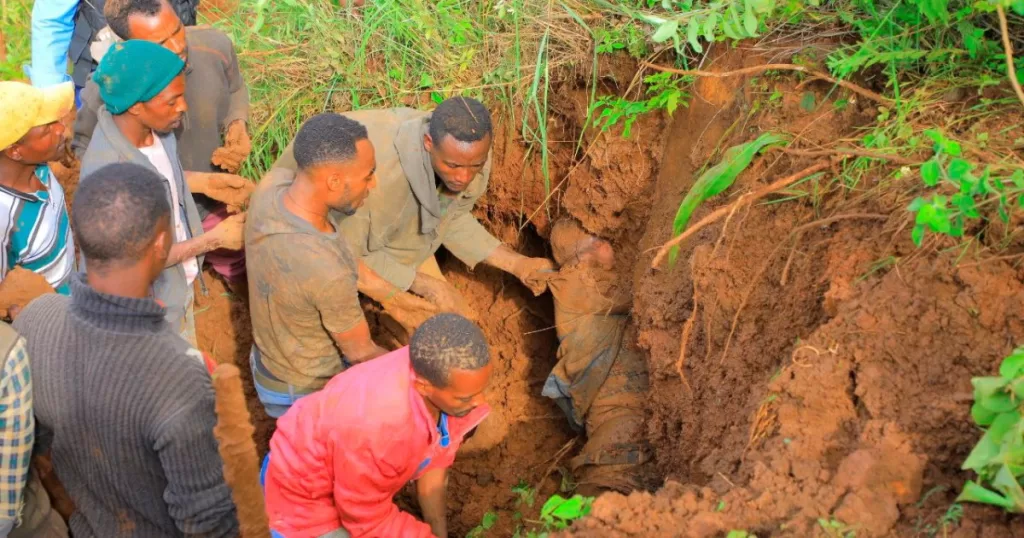UN humanitarian agency says more than 15,000 people need to be evacuated after deadly landslides hit on Monday.
Deaths caused by landslides in Ethiopia have risen to 257, but the final death toll is expected to be 500, according to the United Nations Office for the Coordination of Humanitarian Affairs (OCHA).
The UN agency released the figures on Thursday after the landslides in the mountainous Gofa zone in southern Ethiopia, the first triggered by heavy rains on Monday, the second engulfing those who had gathered to rescue people.
The revised death toll is an increase of 28 on figures provided by Ethiopia’s National Disaster Risk Management Commission on Tuesday.
Hundreds of people combed through red mud at the scene of the disaster in the Kencho Shacha locality, searching for survivors of the deadliest landslide recorded in Africa’s second most populous country.
“More than 15,000 affected people need to be evacuated,” OCHA said. The figures included at least 1,320 children as well as 5,293 pregnant women and new mothers.
The state Ethiopian Broadcasting Corporation (EBC) reported that most of those killed were buried after they went to help the inhabitants of a house hit by an initial landslide.
“Those who rushed for live-saving work have perished in the disaster, including the locality’s administrator, teachers, health professionals and agricultural professionals,” EBC quoted local administrator Dagemawi Ayele as saying.
The soil in southern Ethiopia has been saturated by seasonal rains, making the area more prone to landslides. Rains from April to early May caused flooding and mass displacement, according to OCHA.
It said in May that “floods impacted over 19,000 people in several zones, displacing over 1,000 and causing damage to livelihoods and infrastructure”.
The flooding and landslides occurred even as other parts of the country are facing severe drought, which has prompted traditional herding communities to explore alternative food production methods.
The UN reports that millions of people in the country face malnutrition due to climate-related challenges.
